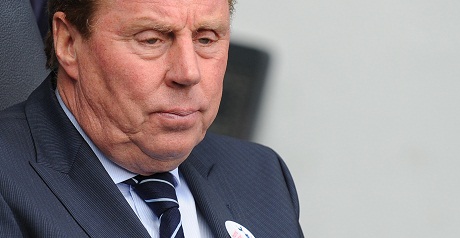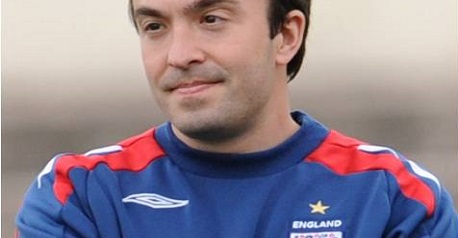New season is the perfect time for players to make a fresh start
Welcome to my West London Sport blog, which I’ll be writing throughout the coming season.
For three of our area’s clubs, the challenge will be to draw a line under the events of last season and move on quickly.
Last term was obviously a disaster for QPR, while Brentford suffered play-off heartache and Fulham struggled badly in the closing stages.
However, I believe all three have reason to be optimistic.
The great thing about football is that it’s a game of momentum, both in games and during the campaign.
I really think that in the case of QPR, last season can quickly be consigned to history because of a very important cultural change that manager Harry Redknapp has been vocal about.

He has talked about having lazy players last season and the need to impose a work ethic.
This will mean a shift from having individual stars who don’t necessarily fit into a team, to having a real team culture.
A challenge Rangers certainly will face is just how fiercely competitive the Championship is.
As much as the obvious physical pressures need to be managed, there are also psychological pressures when players are playing as often as three times in the space of a week.
Having worked with a number of players, I know that a really effective way of keeping them in good mental shape – especially when the matches are coming thick and fast – is to set individual targets for the season.
This may be how many goals they want to score, their pass-completion rate, how many clean sheets – all sorts of things.
Setting individual performance targets to refer to week in, week out is very important and something all players should be encouraged to do.
Fulham struggled towards the end of last season but I’d be surprised if that has an effect on them moving forward.
And of course they have a new owner, with the optimism and sense of a fresh start that will come with that. Players do feel the benefit.
Perhaps the bigger challenge for Fulham is that in successive seasons their away form has been a problem.
Every club or organisation develops a culture, or a ‘language’, even if it’s a sub-conscious thing.
It’s very easy for players to slip into a negative culture when the ‘language’ of the dressing room is that they’re not very good at something – such as performing away from home.
There can be almost an acceptance among players that they can perform at home, but away games are an issue.

Breaking that negative cycle is a challenge for players and certainly managers, who need to create a culture of confidence around the squad.
The manager’s skill will be in convincing his players that playing away is not a huge issue.
As well as reiterating this, there are things that can be done to affect the players’ mindset.
This might even involve something like trying to recreate the look and feel of their home dressing room as much as possible when they’re in an away dressing room – things like that can, and do, make a difference.
The manager’s skill will be needed there and certainly will be at Brentford, who suffered a painful end to last season, missing out on automatic promotion because of a last-minute penalty miss and then losing in the play-off final at Wembley.
In such a situation, it’s difficult for players not to carry a perception of what happened into the following season.
There will be players who are burdened by an experience like that, no doubt about it.
But the good thing is this can be quickly overcome, especially if the manager is able to reinforce the positives which emerged from last season.
And in Brentford’s case, they still had an excellent season and one that they can build on.
They have a young side, but generally you wouldn’t treat players differently depending on their age – the way each individual thinks and reacts differs, regardless of how old they are.
In their situation it may be useful to list three things that went well last season and three things the group need to improve upon.
Again, the aim is to instil a sense of focus and a set of goals which individuals and the group can constantly refer to during the season.
Players tend to be very resilient, whether young or old. After a chance to recharge their batteries during the summer, they’ll be raring to go.
Dan Abrahams is a leading sports psychologist from west London who has worked with a number of clubs – including QPR – and high-profile players. He is also the author of two books; Soccer Brain and Soccer Tough.
For more information visit www.danabrahams.com
Follow West London Sport on Twitter
Find us on Facebook

